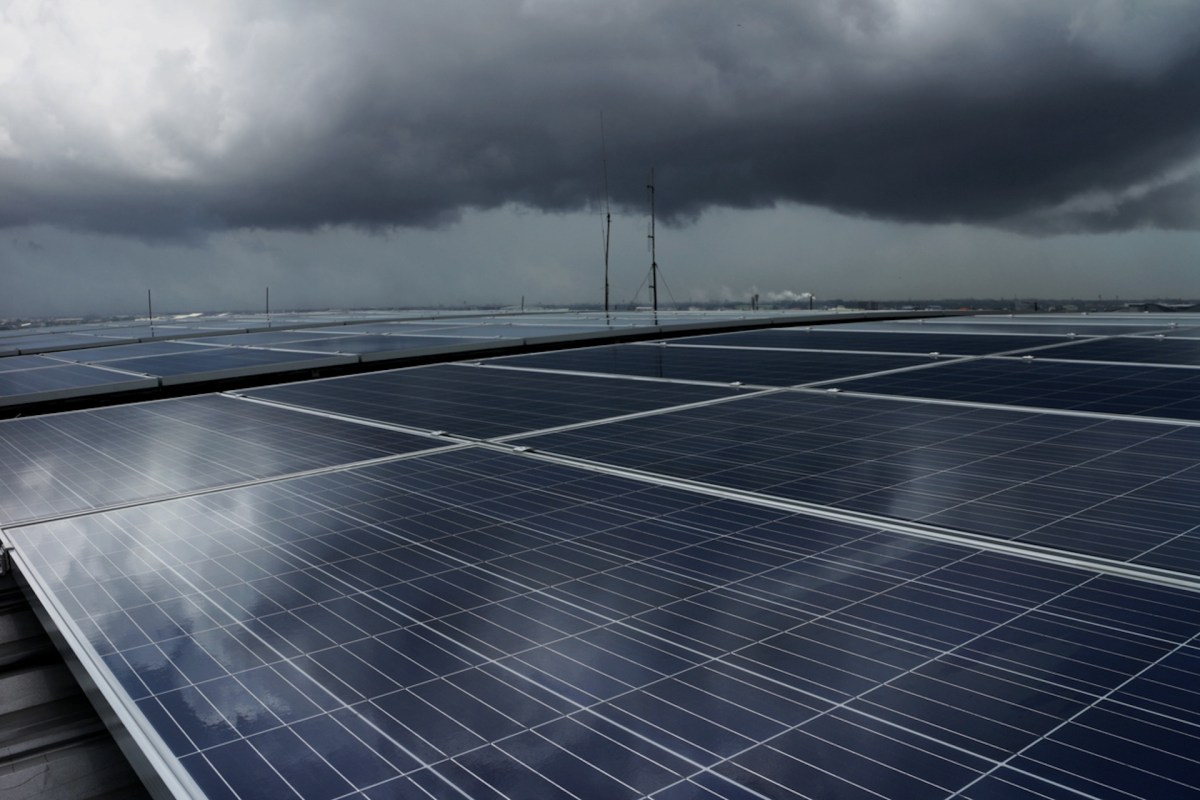Rainfall's ability to wash dirt off solar panels is not as powerful as once thought, and it could have an impact on power generation.
What happened?
Research led by the U.S. Department of Energy's National Renewable Energy Laboratory (NREL) has found that rainfall alone is not enough to clear pollen from solar arrays.
While it makes some difference, it's not nearly enough to allow solar panels to perform at their peak ability.
The study, which has been summarized by CleanTechnica, took data from five utility-scale solar fields in North Carolina. It looked at the impact of soiling, which is when dust, dirt, pollen, and other wind-blown particles stick to solar panels and prevent light from entering the technology's cells.
At the height of the pollen season, solar performance can be decreased by as much as 15% because of the sediment and dust from soil, trees, and plants that settle on the panels.
By contrast, following a wash with a mechanical brush, the panels saw a 5% to 11% increase in performance.
"There is still much work to do to fully understand the risks and implications of pollen and bio-soiling in the southeast U.S., but this work has made clear that regular rainfall is not sufficient to assume that solar plants are fully cleaned in certain environments," research engineer for the PV Performance and Reliability group at NREL Matthew Muller told CleanTechnica.
Why is this concerning?
The study suggests that both small- and large-scale solar arrays should be cleaned regularly to maintain peak performance.
While that's not so much of a problem for users who have the money-saving technology installed at home, it is a concern for sites featuring larger solar arrays, as it will require additional labor to ensure the panels are clean and able to produce as much power as possible.
Annual production losses could be as much as 10%, the study continued, so if solar is to make more of an impact in terms of reducing reliance on polluting coal-fired power stations to create electricity, then more work is needed.
What can be done to help prevent soiling?
Soiling levels depend on location and climate, so dusty settings and areas with extensive plant life are likely to see more issues with solar performance.
But while soiling is perhaps not preventable, cleaning your solar panels regularly will enable you to produce more clean power that produces zero planet-warming emissions.
Writing for Forbes, Emily Glover recommended a cleaning solution made of dish soap and water, or of one part vinegar to eight parts water.
Glover also noted that cleaners made specifically for solar panels are available, but trying to avoid products that contain harsh chemicals that would cause harm to local plant life is advised. Meanwhile, Glover said that coarse scrubbing brushes and bleach should not be used.
Join our free newsletter for weekly updates on the coolest innovations improving our lives and saving our planet.









